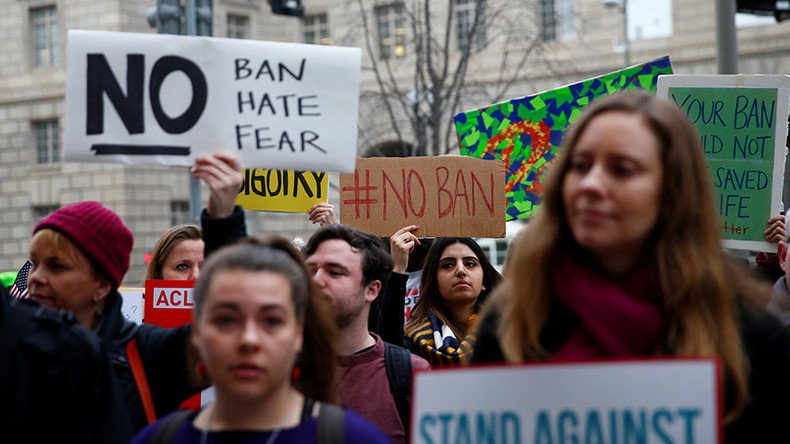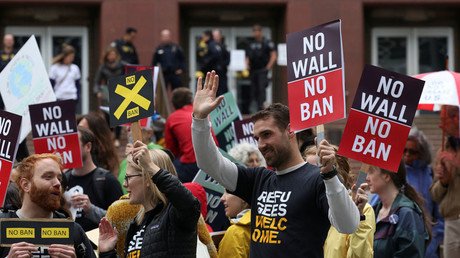Trump admin sets new travel ban exemptions for ‘close’ family or business relations – report

The US State Department has reportedly introduced rules for exemption from President Donald Trump’s travel ban on six Muslim-majority countries. Visa applicants with “close” family or business ties will not be barred from the US under the executive order.
Trump’s travel ban is reportedly set to go into effect Thursday at 8:00pm EST, following a decision by the Supreme Court to lift previous holds on enforcement ahead of any final ruling on the executive order’s constitutionality.
Visas that have already been approved will not be revoked, but new applicants will be required to prove a relationship with a parent, spouse, child, adult son or daughter, son-in-law, daughter-in-law, or sibling already in the US.
Grandparents, grandchildren, aunts, uncles, nieces, nephews, cousins, brother-in-laws, sister-in-laws, fiancees, or other extended family members are not considered close relationships.
The guidelines were outlined in a cable sent to all US embassies and consulates late Wednesday, which was obtained by AP.
As for business and professional links, the guidelines said they will need to be "formal, documented and formed in the ordinary course rather than for the purpose of evading."
READ MORE: US announces 'first step' in new air travel security measures
Students, lecturers, journalists, and workers who have valid invitations or employment contracts will be exempt from the ban.
Consular officers may also grant exceptions to applicants for the following reasons: if they have previously established significant contacts with the US or significant business or professional obligations; are an infant, adopted child, or in need of urgent medical care; are traveling for business with a recognized international organization or the US government; or are a legal resident of Canada who applies for a visa in Canada.
The rules will apply to citizens from Syria, Sudan, Somalia, Libya, Iran, and Yemen. The same requirements, with some exceptions, also apply to asylum seekers from all nations who are still awaiting approval for admission to the US.













